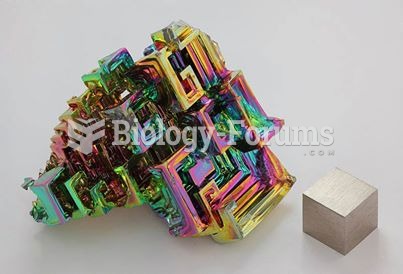|
|
|
Thyroid conditions may make getting pregnant impossible.
Most childhood vaccines are 90–99% effective in preventing disease. Side effects are rarely serious.
Your chance of developing a kidney stone is 1 in 10. In recent years, approximately 3.7 million people in the United States were diagnosed with a kidney disease.
There are major differences in the metabolism of morphine and the illegal drug heroin. Morphine mostly produces its CNS effects through m-receptors, and at k- and d-receptors. Heroin has a slight affinity for opiate receptors. Most of its actions are due to metabolism to active metabolites (6-acetylmorphine, morphine, and morphine-6-glucuronide).
Interferon was scarce and expensive until 1980, when the interferon gene was inserted into bacteria using recombinant DNA technology, allowing for mass cultivation and purification from bacterial cultures.
 Blood-typing and cross-reactions: The blood type depends on the presence of surface antigens (agglut
Blood-typing and cross-reactions: The blood type depends on the presence of surface antigens (agglut
 This five-wire mass air flow sensor consists of a metal foil sensing unit, an intake air temperature ...
This five-wire mass air flow sensor consists of a metal foil sensing unit, an intake air temperature ...





